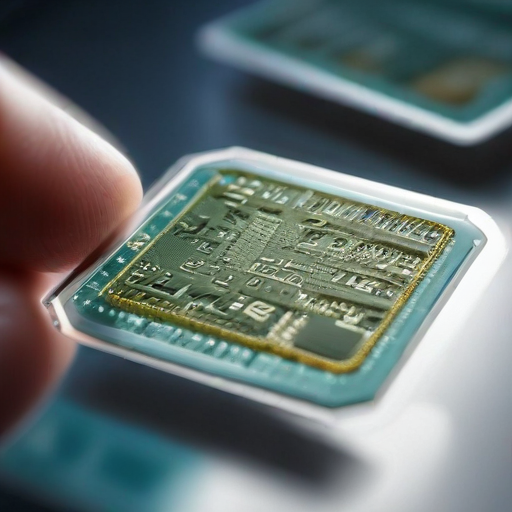On Tuesday, Google (GOOG) shares surged over 5% following the company’s announcement of a pioneering chip, named Willow, which it claims represents a significant advancement in quantum computing. This evolving technology holds the potential to eventually surpass traditional computing methods.
In a blog post on Monday, Google stated that a complex mathematical problem that would take a classical supercomputer an astronomical 10 septillion years to solve can be tackled in just five minutes by a quantum computer utilizing the new Willow chip.
Google emphasized that this chip successfully addresses a critical obstacle in the realm of quantum computing. Unlike traditional computers that operate using bits (the basic unit of information that can only be 0 or 1), quantum computers harness qubits. Thanks to the principles of quantum mechanics, qubits can represent both 0 and 1 simultaneously, substantially enhancing their processing abilities.
However, qubits are also inherently delicate and prone to errors. The challenge intensifies as more qubits are required for a calculation, leading to an increased likelihood of errors. Google claims it has made significant progress in minimizing these errors while also expanding the number of qubits used during testing, which is a crucial step toward improving the reliability of quantum computers for real-world applications.
Google isn’t alone in its pursuit of advancements in quantum computing; several other major technology companies are also invested in this rapidly growing field. IBM has been exploring the area since the 1980s, while Intel, Amazon, Microsoft, and Honeywell are also notable contenders working on quantum technology.
The company outlined that quantum computing holds “promising applications in many fields,” ranging from drug discovery to advancements in renewable energy and cybersecurity.
Support from the US government is increasing for quantum computing research. The National Quantum Initiative Act, signed by President Trump in 2018, pledged $1.2 billion in federal funding for these initiatives. Under President Biden, the CHIPS and Science Act authorized funding for multiple federal quantum computing projects. Recently, bipartisan US senators have introduced legislation to renew the 2018 act, proposing an additional $2.7 billion for quantum computing research aimed at developing viable applications.
Meanwhile, China is reportedly investing over $15 billion in quantum research.
According to a 2024 survey by McKinsey, a majority of technology executives and investors (72%) believe that fully fault-tolerant quantum computers suitable for practical use will not be available until after 2035.
The ongoing advancements in quantum computing signify a pivotal moment in technology with the potential to revolutionize various sectors. As investments and research efforts multiply, there is optimism that these initial breakthroughs may soon lead to practical applications that can transform industries and improve lives.
